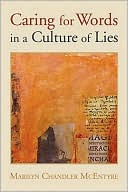The Madness of the King
A Worldview of Despair in Virgil’s Aeneid and William Shakespeare’s King Lear
[Literary Criticism Paper written for a college Western Literature class]
Virgil’s Aeneid and William Shakespeare’s King Lear are stories of kings who, in an act of madness, forsake their kingly duties and overturn the moral order. The former relates the travels of Aeneas as he flees from his conquered homeland and seeks to establish a new kingdom in a distant country. The latter details the downfall of Lear when, in a fit of rashness, he divides up his kingdom and is ultimately exiled from his own country. Both stories deal with the importance of fulfilling one’s kingly roles and the consequences of trying to abandon one’s duties. And both stories have gods that are fickle and not accountable to any ultimate moral standard. Yet, Aeneas knows that by following his fate ultimate good will result, even though this may mean abandoning those he loves. The concluding act of King Lear, however, offers little hope for a restoration of the moral order: the characters must suffer the consequences of their actions, with no intervention by the gods, and often the innocent die with the guilty. Yet, while King Lear may have a more pessimistic ending than The Aeneid, it is merely taking the worldview of The Aeneid to its logical extent: if life is a roulette wheel, justice is destroyed and man is doomed to an existence of despair.
The Aeneid is a more optimistic tale than King Lear because fate is on Aeneas’ side. However, this does not mean his task of founding a kingdom is an easy one. Many of the gods continually plot trouble for Aeneas and his followers, but their scheming meets with little success. Jupiter, although he is on the side of Aeneas, at one point refuses to get involved, declaring, “The effort each man makes will bring him luck or trouble. To them all King Jupiter is the same king. And the Fates will find their way.” Clearly, the gods cannot kill whoever they wish. Thus, fate could be seen as a sort of power that the gods are subjected to. Yet, importantly, it is not because of any personal merit that Aeneas is destined to survive. Fate is just as fickle as the gods. The Aeneid easily could be a pessimistic tale if it were told from the viewpoint of a minor character that is not destined to survive: Dido, the queen of Carthage.
When Aeneas lands in Carthage to rebuild his wrecked fleet, his mother, Venus, worried that the other gods will use Dido for evil, inflames the Carthaginian queen’s heart with passionate love for Aeneas. Aeneas without thought for his people or his son or even the gods, returns this love. His madness impels him to abandon his destiny and stay with Dido, even helping her lay the foundations of her city—until Jupiter becomes angered. A god comes to Aeneas and reproaches him for forgetting his own kingdom. Aeneas’ love of the gods and love of his son override his devotion to Dido. Placing his destiny above his passion, he leaves Dido behind and continues towards his new homeland. This does not mean there are no consequences to his actions. Devastated, the scorned queen burns herself alive. In her last speech, she observes, “I lived my life out to the very end and passed the stages Fortune had appointed.” Fate was not kind to Dido. Though an innocent character that bore no ill will towards Aeneas and was merely a victim of a goddess’ divine spell, Dido suffers a terrifying and tragic death. Aeneas, however, emerges from the whole ordeal unscathed. Once he realizes that his destiny is more important than his passion, he repents of his actions, overcoming his moment’s madness and resuming his role as the leader of his people to find a new homeland.
Contrast this to the title character of Shakespeare’s King Lear. Like many tragic heroes of literature, Lear is burdened with a “hamartia” – a flaw in his character. Lear is rash, stubborn, and often acts without thinking. When his daughter Cordelia cannot find words to express her love for her father and refuses to flatter him, he flies into a rage, disowning her and exiling her from England. His plans to divide up his kingdom and give his authority into the hands of his daughters also appear ill thought out. Indeed, it is clear that he did not ask the opinion of his councilors for Kent calls his actions “mad.” Ultimately, his two eldest daughters banish him from their houses and condemn to death anyone who attempts to give the former king refuge. Lear now begins to truly go insane, but before completely losing his senses, he repents of his previous actions. Driven by his daughters to fend for himself during a storm, he decides to pray. Importantly, he prays not for himself but for “poor naked wretches” and declares, “O, I have ta’en too little care of this! Take physic, pomp; expose thyself to feel what wretches feel, that thou mayst shake the superflux to them, and show the heavens more just.” Lear realizes that his plight is small compared to others’ in the world. The audience might find irony in this – Lear’s plight is great, not small. He was once king of all of England and now is an exile and a beggar. Yet, Lear understands that his character is flawed, even though he thinks he is a man “more sinned against than sinning.” He regrets that he was not more kindhearted as a king and gazing on the ragged figure of Edgar, tries to rend his own garments as well, realizing that man is no different in rags or in robes. “Is man no more than this?” he asks, “Consider him well…Thou art the thing itself; unaccommodated man is no more but such a poor, bare, forked animal as thou art.” Lear is experiencing true humility and, like Aeneas, will ultimately realize that it was wrong to abandon his kingly duties. Later on he will declare, “Pray you now, forget and forgive. I am old and foolish.”
But Lear’s repentance does not mean that the moral order will be restored. As he observed when seeing Edgar, all men are equal: rags, robes, vice, or virtue are all the same to Fate. Indeed, although Lear reconciles with his daughter, Cordelia, and gains humility, he is not able to resume his kingly duties. And while Lear begins to overcome his insanity in the last act of the play, the murder of his daughter, Cordelia, drives all reason from him. His grief ultimately kills him. One character Gloucester declares, “As flies to wanton boys, are we to the gods, — They kill us for their sport.” Indeed, Cordelia’s death seems unnecessary for the plot of the play. Hers is not a sacrificial death in order to defeat evil. Rather, she is a casualty of the evil characters’ ambition and malice. In the same scene, a moral order seems to be reestablished when the character Edmund repents of his wickedness and is lead away to be executed. His brother Edgar, who had supported the king, observes, “The gods are just.” But when he hears of the plot to kill Cordelia, Edgar exclaims, “The gods defend her!” However, the gods do no such thing. Cordelia’s death is pointless and leads to no ultimate good. Rather, King Lear is broken by his suffering, dying as well, and leaving his kingdom without a ruler, having destroyed the authority structure.
Thus, both works exemplify a worldview that denies an ultimate moral standard in the universe. The end result of this is chaos and despair. It is true that, while both kings underwent periods of madness, Aeneas was rescued by a “deus ex machina” and was able to continue his kingly duties. Yet, Aeneas was only able to accomplish this because he was favored by the gods and his fate dictated that he would succeed. Fate could just as easily have favored another character and Aeneas could have met an untimely death. Indeed, this is the fate of King Lear, of Cordelia, and of Dido. Ultimately, the momentary madness of King Lear and Aeneas is reflective of the larger madness of their world – a bleak world of despair where characters live or die based on the whims of Fate.
Labels: book reviews, bookish musings, literary criticism
Posted by Nicole Bianchi at 7:03 PM
![]()

.jpg)




 This is life seen through the eyes of a writer. A blog that critically examines literature, music, and film. NB, initials which coincidently coinside with the Latin words "nota bene" (mark well), belong to the blog poster, a bibliophile who likes to haunt libraries and book stores, talk about all things bookish, and ramble at any length on things regarding literature. Many of the articles posted here were written as essays for high school and college.
This is life seen through the eyes of a writer. A blog that critically examines literature, music, and film. NB, initials which coincidently coinside with the Latin words "nota bene" (mark well), belong to the blog poster, a bibliophile who likes to haunt libraries and book stores, talk about all things bookish, and ramble at any length on things regarding literature. Many of the articles posted here were written as essays for high school and college.






0 Comments:
Post a Comment
<< Home